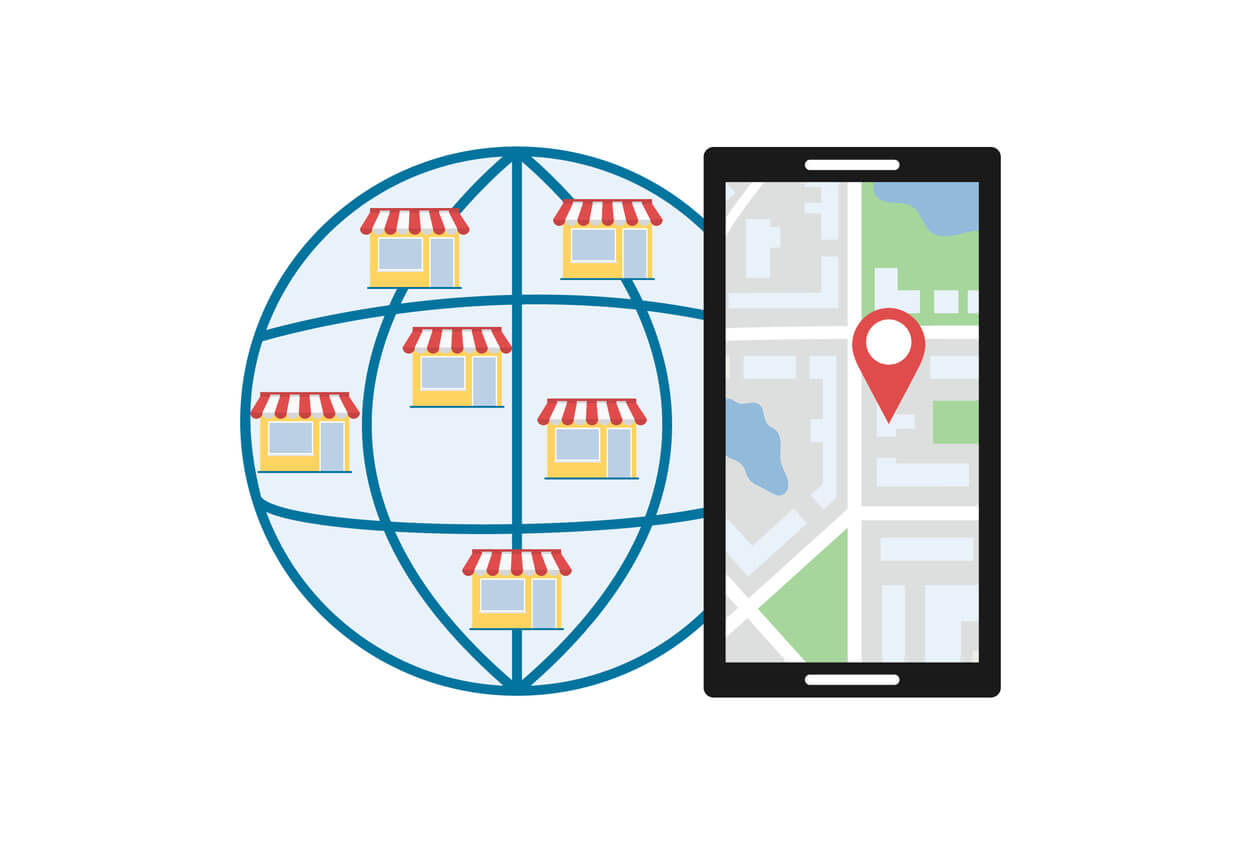8 Franchise Marketing Strategies That Will Grow Loyalty and Revenue
Creating an effective franchise marketing strategy is an obstacle every franchise business faces.
Whether you're the franchise owner of a Quick Service Restaurant (QSR) franchise like McDonald’s or a multi-location business like the Hertz car rental dealership brand, or have bought into the Gold’s Gym enterprise, you’ll know that streamlining your franchise marketing efforts is a challenging process.
There are two main types of franchise marketing: operational and franchise development marketing.
Operational franchise marketing aims to acquire and retain customers. It also aims to increase brand awareness and strengthen the organization’s reputation.
Franchise development marketing helps reach out to prospective franchisees and educate them about the business. The goal is to project the franchisor as a credible organization, attract more franchisees and boost revenue.
The franchise marketing strategy can also vary depending on the type of franchise business model. A large global chain, like KFC, would have strict brand guidelines about brand colors and logo usage.
Yet, they would have to offer space for regional variations in the marketing strategy. For example, KFC stores in China could run special campaigns around Chinese New Year.
Similarly, American outlets can offer promotions and giveaways during Independence Day or Thanksgiving. In contrast, an LA-based company that only has Californian franchisees can create a single franchise marketing strategy for all outlets.
Franchise marketing is a multifaceted activity. It includes PR campaigns, social media marketing, newspaper adverts, and reputation management. These can often be made easier with franchise marketing software, which we'll discuss in more detail later.
Remember, these tactics cannot work in isolation. They must be brought together as cohesive franchise marketing strategies.
How to create a successful franchise marketing plan
If you’re creating a franchise marketing strategy from scratch or looking to revamp your existing one, we’ve got you covered. Here’s a list of eight franchise marketing strategies to get you started.
1. Focus on social media marketing

Thanks for its growing popularity among nearly everyone with an internet connection, franchise owners need to consider social media when it comes to digital marketing channels.
Over half the active users on Facebook and Instagram use the platforms to follow or research brands and products. This makes social media an effective part of a franchise marketing plan because it allows franchise owners to reach out to new and prospective customers.
Many social media platforms offer digital advertising options. You can run paid ads and narrow the demographics on various factors like franchise location, age, and gender. You can also encourage the use of brand hashtags to boost online visibility.
Social media helps you go beyond disseminating information. It allows local franchises to have a two-way conversations with consumers. You can respond to feedback and queries and let customers know that you value their opinion.
Social media is also a great addition to any franchise marketing strategy that enables businesses to show their personality and be more authentic.
Popular brands like Taco Bell, Wendy’s, and Chipotle often lever channels like Twitter to engage with their customer base in a light-hearted way as part of their franchise marketing plan.
While they maintain brand consistency, their franchise marketers engage with their audience (and even competitors) through threads and memes. These back-and-forth interactions have historically brought a smile to their consumers' faces and boosted brand awareness.
When a franchise location opens, you should create a structured social media plan that combines organic and paid franchise marketing strategies.
Examples of organic strategies include posting regular content and replying directly to comments. Paid strategies such as YouTube or Meta ads can also be effective.
Together, they help capture the digital space and convert online followers into customers.
2. Drive traffic with search engine optimization

Search engine optimization (SEO) is a valuable tool to increase the visibility of your local business' website and drive traffic.
As a local business, SEO is also a great franchise marketing tool for people with limited marketing dollars.
The ultimate goal of these franchise marketing efforts is to help you generate leads that convert to sales. Approximately 50% of shoppers use Google to discover or find new products. So you want to make sure you have strong SEO in place as part of your franchise marketing strategy.
A franchise SEO strategy can help Google Business Profile listings become top-rated and rank higher on search engines.
This makes users more likely to choose your website over other ones. It also improves your credibility and helps increase your brand identity.
Here are some good practices to improve your search engine rankings while keeping marketing spend to a minimum:
-
Publish relevant content — Google will consider your content high-quality if it’s updated, well-written, and unique. Make sure to include targeted keywords that your users are likely to use.
-
Optimize your website for mobile use — Almost 59% of global web traffic comes from mobile devices. This makes it essential for a multi-location business to have mobile-friendly websites. By optimizing your website for mobile use, you give users the convenience of interacting with your brand across devices. This added accessibility helps improve customer retention and drives sales.
-
Improve your domain authority — This is a two pronged-strategy. First, you must remove dead or irrelevant links from your website. Second, you should create authoritative content that other websites link back to.
-
Quicken your website’s loading speed — If your website takes too long to load, your potential customers won't stick around. Even worse, they might buy the product or service from your competitors. Multi-location businesses must test their websites often to make sure they’re loading quickly.
3. Stay connected through email marketing

You can include email as another one of your franchise marketing channels to deepen your relationships with existing customers and reach out to prospective ones. Email marketing is an effective way to educate your target audience about your offerings.
In fact, 87% of marketers use emails to distribute content organically. Moreover, using email as part of a franchise marketing strategy allows you to personalize brand-consistent messaging, which helps make your audience feel more connected to it.
Organizations use email marketing as one of the top metrics to determine how successful a piece of content is. 86% of marketers use open and click rates to measure content performance. This is a higher percentage than that of social media analytics of website traffic.
To create a successful email plan, you’ll need to follow these steps:
-
Pick an email service provider that will help you create, organize and send out emails. It should provide you with all relevant performance analytics.
-
Identify your target audience for the email marketing campaign. Try to be as specific as possible and narrow down on their personal traits, shopping habits, etc.
-
Build a list of subscribers. You can offer discounts in exchange for an email address or place an opt-in form on your website.
-
Create engaging and visually-appealing emails that follow brand guidelines and send them to your audience. Don’t forget to track how the emails perform and keep working to improve your open and click rates.
4. Increase brand awareness with public relations campaigns

A franchise business can use a PR strategy to gain exposure and win its customers’ trust. PR campaigns show long-term results. They strengthen brand identity over time and use influential figures or themes to promote company offerings.
At a broader brand level, public relations as part of a franchise marketing strategy benefits the franchisor and franchisee by improving national brand identity while increasing local marketing awareness for individual outlets.
To create a successful PR strategy, you must start by identifying your goals. Depending on your marketing budget, they could be to create hype around a new launch or improve community relationships.
Next, you can research the different PR channels available to figure out the right one for you. Popular online marketing channels include press releases, guest blogging, and influencer collaborations; traditional marketing channels could include supporting local events, sponsoring local businesses, and leveraging direct mail.
No matter which franchise marketing strategy you’re using, brand consistency is crucial. All your franchise marketing efforts must present unified brand messaging. This lets consumers know they can expect the same experience across franchise locations.
That said, individual franchisees should be able to contribute to the franchisor's marketing strategies, too.
Even if people aren't franchise marketers by trade, it could be awesome to create communication channels to help franchisees share local marketing campaign ideas.
This includes them in the decision-making process and encourages innovation and fresh thinking. It also makes franchisees less likely to deviate from corporate marketing guidelines.
5. Create a content marketing plan

Before the television and the internet, brands around the world used content as an offline marketing tool! Over the years, it has been largely adapted for online marketing channels.
Content marketing is the process of creating digital content like blog articles, videos, podcasts, and photos that don’t directly advertise a product but help educate and create interest in the product or service among the target market.
It's a highly successful digital marketing strategy where 67% of online marketers believe that it helps generate more leads and demand while 83% marketers attribute better brand awareness to content strategies.
This means franchises should conduct thorough market research to define their target audience, find relevant topics and keywords to talk about, and find a niche that isn’t oversaturated saturated with the same types of content.
Based on these factors, you can get your target audience excited about your brand by developing marketing materials like behind-the-scenes visuals, educational blogs that cover underrated or overlooked areas of your niche or industry, helpful eBooks, informative webinars, in-depth white papers, and infographics to share on your company website.
6. Use influencer marketing

Influencers have become a marketing tool to command the attention of millions of people, young and old, around the world.
An established brand would likely have easy access to highly influential social media personalities who can popularize your brand among your target audience.
Influencer marketing can not only help you improve brand awareness, but it can also take your products or services to new customers who might otherwise have not known about you.
All you have to do is to identify influencers who fit your brand values and ideals and will be able to represent your brand with finesse.
One popular example of what this can look like is, you send your brand products to influencers for free and they use and market your product on their social media channels in exchange for videos and photos.
And of course, you'll want to make sure the influencers you work with follow your brand guidelines and don't become the bulk of your marketing expenses.
7. Manage your online reputation

A robust online reputation is critical for franchisees because of two reasons.
First, it helps attract new customers and retain existing ones.
Nine out of ten customers read online reviews before buying a product. That means a brand’s online reputation plays a massive role in determining purchase decisions for potential customers.
To make sure your franchise locations' brand image is (and remains) spotless, you must monitor and manage your online and social media presence diligently.
Now more than ever, online marketing is just as important — if not more important — than offline marketing.
But not every franchise necessarily has a marketing team that's entirely dedicated to reputation management.
As a franchise owner, here are a few things you must do for all your business locations:
- Respond to all reviews, negative and positive
- Encourage customers to leave you a review online
- Ensure that all your franchise locations are listed on major business listing websites like Google Business Profile listings
- Work on improving customer relationships
- Respond to reviews, complaints, and testimonials on social media platforms
- Use customer feedback to improve operations and avoid negative reviews
The second reason why a strong online reputation is important is because it is key to attracting potential franchisees.
Business owners considering franchising options are often spoilt for choice.
They end up evaluating dozens of franchises with solid bottom lines and enticing growth prospects. But what the books don’t tell you is how those franchises figure in the minds of their customers.
In this context, a franchise with a great online reputation stands out starkly from others and comes across as unique and tempting.
Research shows that 90% of customers regard online reviews as they would recommendations from friends and family. The same is true of business owners seeking promising opportunities.
When a prospective franchisee comes across a brand with a solid online reputation, it fosters trust and credibility.
Positive reviews demonstrate not just a brand’s commitment to delivering value but also the satisfaction of existing franchisees and their customers.
After all, everybody would want to be part of a brand that keeps its customers satisfied and always eager to come back for more.
8. Enable franchisees to execute local and personalized franchise marketing campaigns

While it is important to maintain brand consistency and marketing uniformity across your brand, it is also crucial to localize and personalize marketing campaigns so as to appeal to local target audiences in all your locations.
Within the franchise model, a parent company with multiple locations can do this by educating prospective franchisees on how to create a successful franchise marketing plan and equipping them with the tools and know-how needed to execute such campaigns successfully.
Franchisees could use local data to create personalized outreach campaigns using emails or direct calls. They can also create locally relevant franchise marketing material to use in digital marketing efforts.
As part of your franchise marketing plan, you could utilize local cultural themes, social issues, or even language that's native to franchise locations to make the ad content more appealing and easily consumable for local audiences.
For example, global sporting giant Nike often creates local franchise marketing campaigns targeting specific locations.
Its ‘Nothing Beats a Londoner’ local marketing campaign is a great illustration of how franchise marketers tailored content for a specific locale.
Franchise marketing examples to inspire your strategy
Sometimes it can be challenging to come up with strategies in a silo. There’s no harm in looking for inspiration to improve your franchise marketing strategy.
There are thousands of franchise businesses in the market. You can spend some time researching their strategies and identifying what works best.
Still feeling stuck?
Check out the NiceJob podcast episode Franchising Your Business: How to Start and Grow a Successful Franchise with Cameron Carson. (Or watch it below!)
In it, he answers many common questions about franchising. He also guides you on laying the foundation for a solid franchise marketing strategy before franchising your business.
Get more reviews, sales, and repeat business
Turn your franchise’s amazing reputation into your biggest asset with NiceJob’s automated growth system.
Learn More.png)




